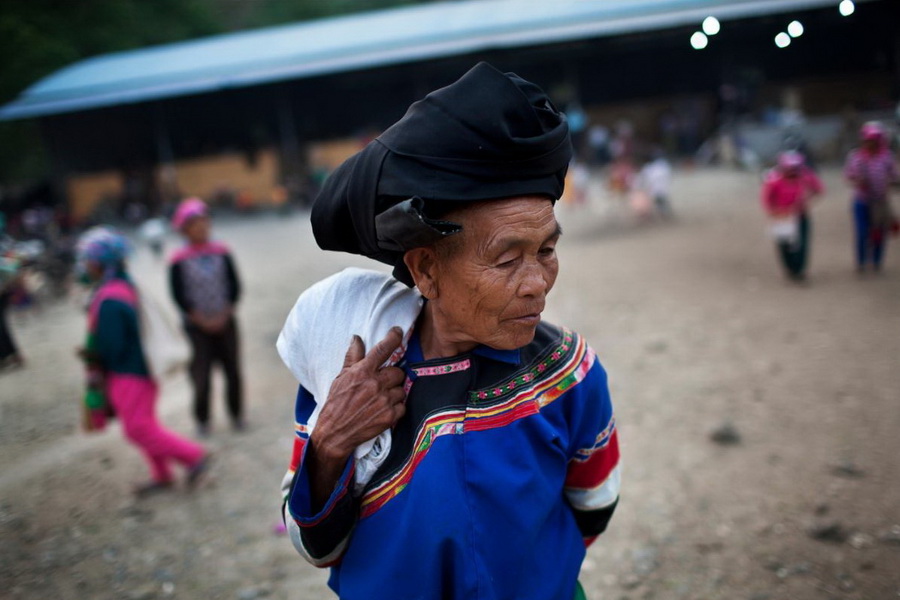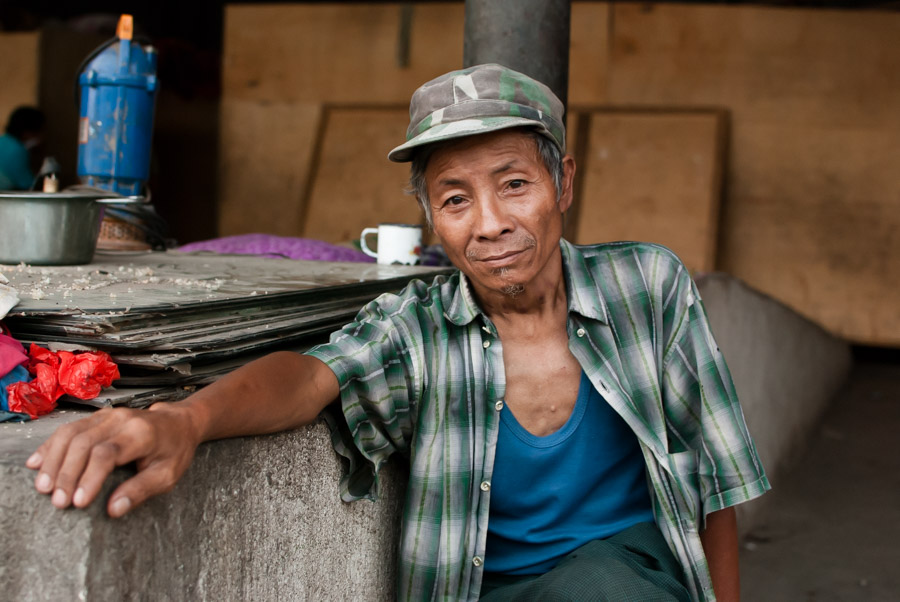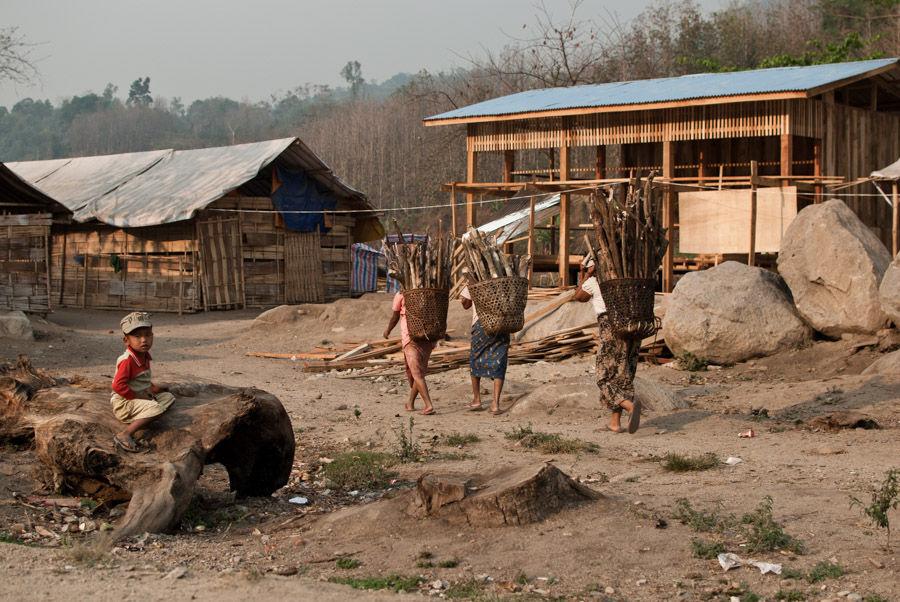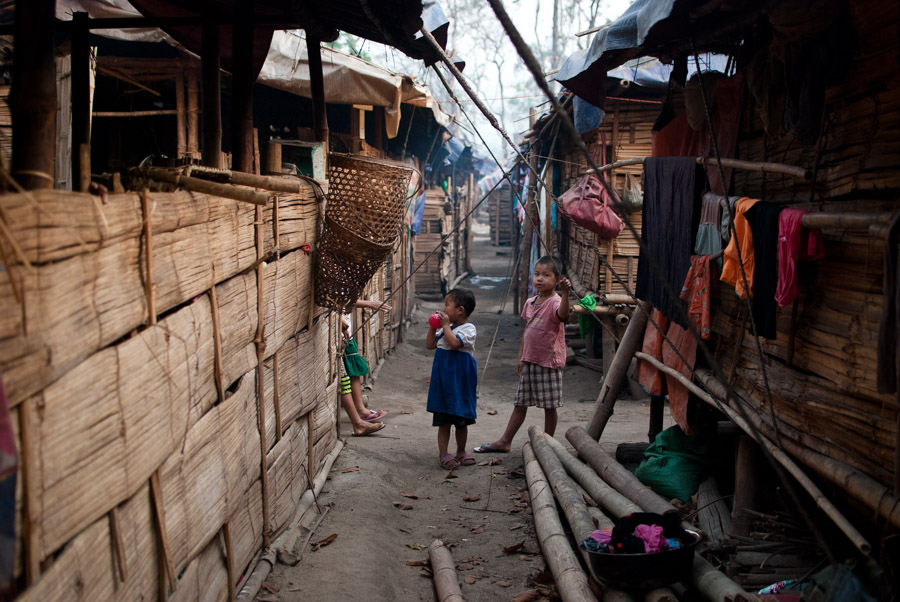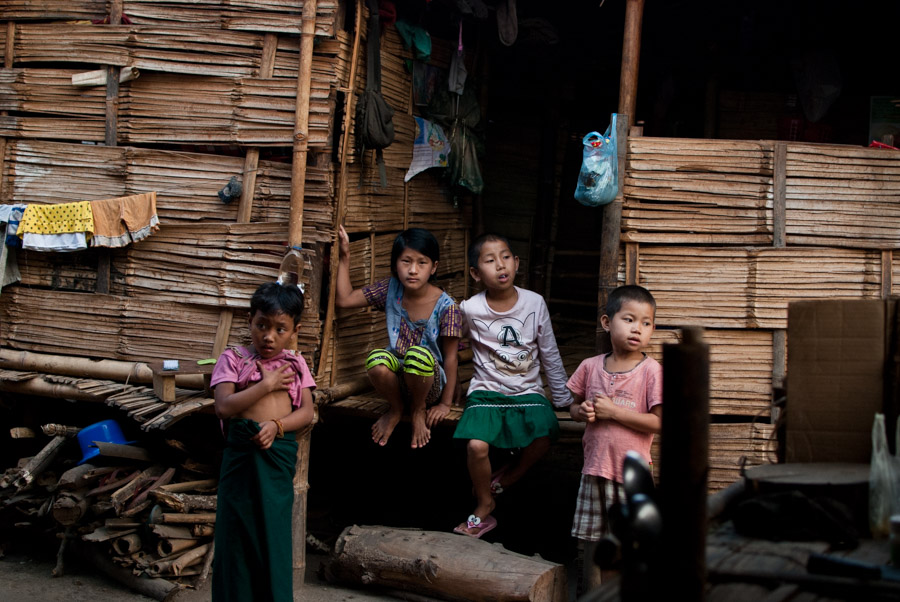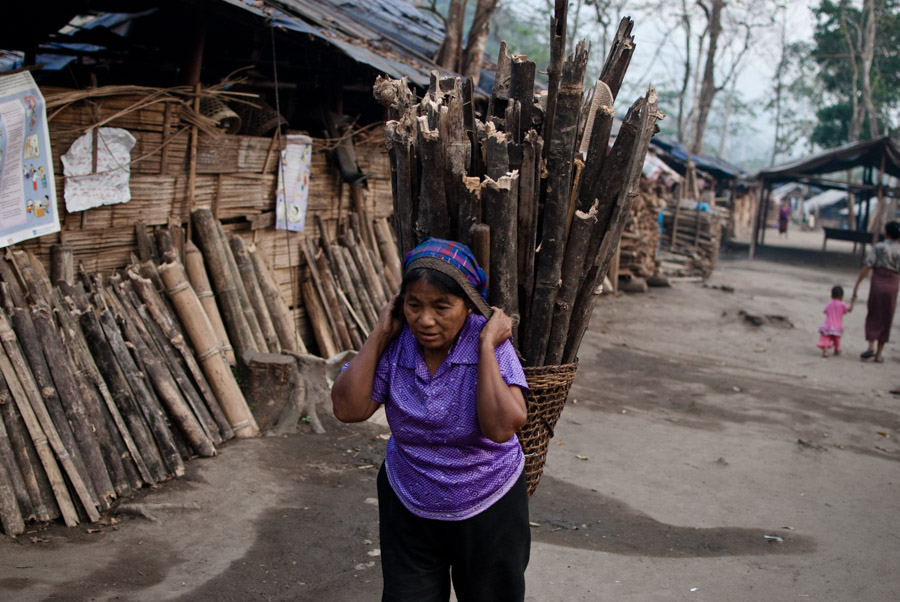In Kachin State, ‘reform’ remains a distant concept.
LAIZA, Myanmar—The world watches today as Myanmar goes to the polls to elect 45 new members of parliament. Though limited, the by-election caps off a remarkable year of reforms by the country’s new government, which has released political prisoners, loosened press controls and lured Aung San Suu Kyi, Myanmar’s world-famous democracy icon, back into the political fold. If the 66-year-old Nobel laureate wins a seat in parliament — as her party is already reporting she has — it will be a symbolic milestone for a country emerging from decades of military dictatorship.
But in the mountainous regions of Kachin State in northern Myanmar (formerly Burma), a different story is unfolding. Since June 2011, bloody fighting has raged between government troops and ethnic Kachin rebels, displacing tens of thousands of civilians.
The clashes shattered a 17-year-old ceasefire that had preserved a fragile peace between the Kachin Independence Army (KIA), which has been fighting for autonomy since the 1960s, and the Myanmar military, which is seeking to disarm ethnic rebel groups.
In contrast to the boisterous campaigns being staged by Suu Kyi’s supporters, optimism in this rebel-held area of Kachin State — a sliver of territory nestled along the Chinese border — is in short supply. “We’re not interested in the elections,” says Maran Aung, a 52-year-old farmer who fled his land after the outbreak of fighting last year. “I wanted to stay and harvest my crops but it’s impossible. I was afraid of the bullets from the Burmese army.”
Over the last nine months, the population of Laiza, the shabby border town of 7,500 that serves as the capital of the Kachin Independence Organization (KIO) — the KIA’s political wing — has been inundated with civilians fleeing the fighting. For many of the displaced, “reform” remains a distant concept.
At Manau Wang camp, one of three for displaced civilians in Laiza, former KIA soldier Hting Hput Tu leans on his wooden crutches as children play on the concrete nearby. The 34-year-old, who lost his leg to a landmine while on patrol in October, is skeptical about what changes the by-election will bring.
“This kind of election and this kind of campaign — who is it for?” he says. “I don’t think Aung San Suu Kyi can stop the fighting. If the Burmese authorities don’t accept our offer, the fighting won’t stop … This kind of campaign is just for inside Burma, not for the frontier areas.”
As if to underline his point, Myanmar’s electoral commission announced last week that it was suspending voting in three Kachin State constituencies under government control, citing the security situation.
Such complaints are common in the KIO territories, where mistrust and suspicion of the central authorities stretch back years. While President Thein Sein’s government has quickly won over old critics in the West with its reforms, prompting some nations to start rolling back their economic sanctions, the country’s troubled ethnic periphery looks a lot like the Myanmar of old.
In a report released last month, the New York-based Human Rights Watch documented how Myanmar troops have pillaged and destroyed Kachin villages during the past year’s conflict, firing indiscriminately at civilians. The developments in Kachin State, it states, “stand in stark contrast to hopeful human rights developments in lowland Burma in recent months.”
Mark Farmaner, spokesman for Burma Campaign UK, says the publicity surrounding Suu Kyi and the reforms has drawn attention away from the country’s restive north. “If abuses like those taking place in Kachin State were happening in and around Rangoon no-one would be talking about Burma being a reforming country, or talking about lifting sanctions,” he says.
Ethnic conflict remains Myanmar’s original sin. Since winning its independence from Britain in 1948, the country has been in a state of near-constant civil war with an alphabet soup of ethnic militias occupying its hilly borderlands.
Despite some positive signs — Thein Sein’s government recently signed tentative cease-fire agreements with ethnic Mon and Karen militia — a long-term political solution for Kachin State remains elusive. After years of aborted cease-fires and failed negotiations, it’s hard to be optimistic that Myanmar can solve this problem without deeper structural reforms.
“As long as ethnic minority populations continue to suffer abuses, Burma’s prospects for reconciliation and development will be stifled,” the Human Rights Watch report states.
Given the depth of the mistrust, however, it’s unclear what Suu Kyi and her National League for Democracy (NLD) will be able to do to unpick Myanmar’s Gordian knot. The party says it hopes to use its new parliamentary presence as a platform to promote peace and dialogue, but Kachin attitudes towards Myanmar’s democracy icon remain mixed.
One who reveres “The Lady,” as Suu Kyi is affectionately called, is 43-year-old Kaw Hpang, another resident of Manau Wang camp, who thinks her election to parliament could trigger “some kind of change” in Myanmar.
“Aung San Suu Kyi is trying to make Myanmar a democratic country,” she says, cradling her 18-month-old son in a pink and white checked sling. “She’s a very nice person. We can trust her.”
But when Suu Kyi campaigned in the Kachin State capital Myitkyina in February, she drew a notably smaller crowd than on the other stops of her campaign tour.
Pawk La, 71, a KIA veteran and church minister who fled the fighting, says he is worried Suu Kyi will follow in the footsteps of her father Gen. Aung San. Though widely considered the father of Myanmar’s independence, Aung San established policies that privileged the majority Burmans ahead of ethnic minorities, according to Pawk La. “She’s following her father’s ways, so we’re afraid of Burmanization,” he says.
In any case, few here think the NLD will have much power in a lower house of parliament where a quarter of the seats are reserved for the military. Maj. Kareng Naw Awn, the mayor of Laiza, says that the 75 percent vote needed to amend the 2008 constitution — a major sticking point for the KIO — will be nearly impossible for the opposition to engineer.
“I believe Aung San Suu Kyi has done some good things,” he says, “but if she wins the election and is in the parliament and can’t change the constitution, it will just be meaningless.”
Whatever the NLD’s intentions, the reforms taking place in Yangon and the capital Naypyidaw remain far removed from the chaos of the Kachin conflict zones.
At a military hospital perched in the hills overlooking Laiza, Saw Htet Aung nurses a bullet wound sustained last month during a surprise attack on government troops. Sitting on a metal bed frame covered with a thin mattress, he talks about the distant reforms that have captured international attention and cast the former pariah state in a rosy new light.
“I have no idea about the elections,” he says. “If you want freedom you should fight for it.”
[Published by GlobalPost, April 1, 2012]


